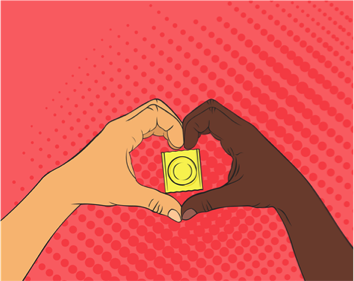
What is Herpes?
Genital herpes is caused by a common viral infection, spread by skin to skin contact with someone else who has the virus. This may be through kissing, vaginal, anal or oral sex. Herpes cannot be passed on via shared towels, bed sheets, swimming pools, toilet seats or shared cups and household objects.
There are 2 types of Herpes, and either type can cause sores around the mouth, nose, face or genital skin; and sometimes even around the fingers and nails. It is most likely to be passed on whilst a person is having an ‘outbreak’ – where contact occurs with a spot or ulcer present on the skin. This is not always the case though and it is possible to pass the virus on when no symptoms are present and the person may not even be aware they have herpes.
In the UK, 7 out of 10 people have caught herpes virus by the age of 25; although most people won’t know this because only 1 in 3 people develop noticeable symptoms.
Herpes belongs to a family of viruses that also causes chicken pox. People worry a lot about herpes being ‘incurable’, however like chicken pox, once you have caught this infection, it lives in the body forever but the immune system remembers this and manages it well. It is unusual for people to experience chicken pox more than once in their lifetime, and herpes works much in the same way: if a person is in good health and their skin is in good condition, herpes often does not recur. If it does, and is problematic, this is manageable with medication. People think once they have ‘caught’ herpes, they will have problems all the time. This is not usually true.

What are the symptoms (signs) of herpes?
When herpes is first passed on, symptoms can occur between 2 days and 2 weeks later. Sometimes symptoms are very mild and not noticed, so people do not always realise they have been infected. The majority of people will never experience symptoms.
If symptoms do occur, they often start as itching or tingling in the area where the infection is present. It is common for people to think they have candida (thrush) or a urine infection due to this sensation, as it may be noticed most when passing urine or washing / wiping the skin. Some people describe feeling like they have a flu-like viral illness, and they may notice enlarged achy glands in the groin as part of this.
Small spots may appear – sometimes just one, for other people it may be many. After a few days these spots burst and turn into little ulcers. These can be sore. Once they start to heal, scabs form and they usually settle in 3-10 days.

Treatment for Herpes
Treatment for herpes involves providing antiviral medication, usually called Aciclovir, to speed up the healing process. Sometimes local anaesthetic ointments can be given to help with discomfort where the ulcers appear.
Nothing terrible will happen if herpes isn’t treated with medication, as the body does a fantastic job of healing the skin, it may just take a little longer to resolve, especially if it is a primary (first) outbreak of the infection. With a first outbreak of herpes, it can take up to 2 weeks for the virus to settle; if subsequent outbreaks occur it may only take a few days.
Other things people can do to help:
- Take over-the-counter pain relief, such as paracetamol or ibruprofen.
- Keep the skin clean and dry, avoiding the use of soaps, shower gels or bubble-baths which may cause irritation.
- Avoid applying creams such as Sudocrem, germoline, etc.
- A cup or jug of warm water containing a small teaspoon of salt can be soothing to bathe the skin if the ulcers are very painful.
- Some people find it easier to pass urine whilst in the shower or bath, or whilst pouring warm water over the genitals, as this can ease discomfort too.

What should I do if I think I have Herpes?
Don’t panic! If you are worried about herpes, contact your local clinic to have a discussion and an assessment of your symptoms. If you are examined and there are signs of the infection, we can take a swab from the area to confirm the diagnosis and start treatment to heal the skin. Swabs don’t always confirm infection if the skin has started to heal already, so it’s best to try and attend as soon as symptoms are noticed so we can accurately try and make a diagnosis as soon as possible.
Sometimes patients attend our clinics because they have been told by a partner they have herpes or have heard rumours about someone they have had sexual contact with may have herpes. They want to know if they have been infected. Unfortunately, unless symptoms are present we cannot test or confirm whether infection has been passed on.
It’s also important to note that the first signs of herpes infection can sometimes occur many years after initially being caught and can appear for the first time in long-term faithful relationships, so symptoms do not always relate to recent contact with the infection.

How can I avoid getting Herpes?
Using a condom will make a big difference, as long as it is put on before any skin to skin contact occurs. Dental dams and condoms can be used for oral sex to reduce the chance of passing on the cold-sore virus.
Avoiding sexual contact whilst a partner has an outbreak (spots or ulcer present) or signs the infection may be on its way – often a person notices tingling or an itching sensation in the area where they get the spot.
However if the virus is active in an area not protected by a condom, transmission may still occur, which is why it is a very common infection.



